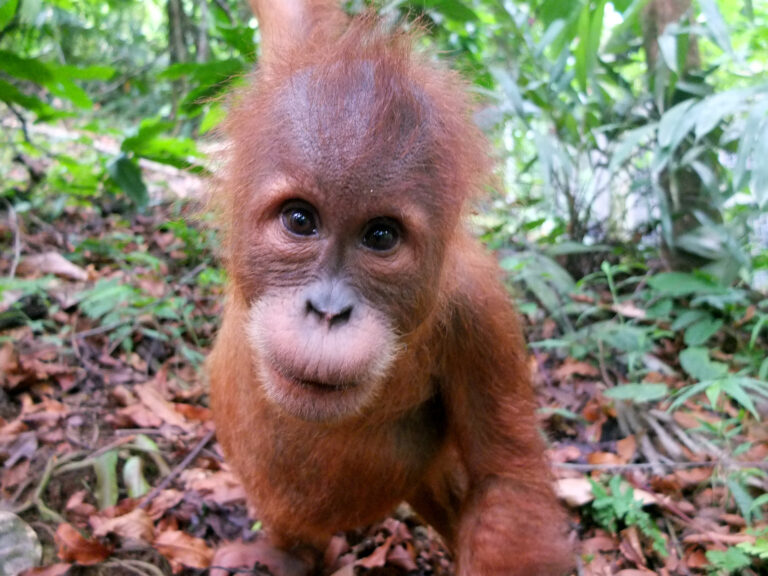Without happy end

Without happy end
A happy majority
We are happy to say that over the last 21 years we have been able to successfully raise and nurse back to health more than 320 orangutans in Sumatra. They have all been released back into the wild. Thus they form the foundation of a new wild population. Since the beginning of our work in Sumatra, we have looked after 420 orangutans at the station. So on average, about 20 orangutans have been brought in to us each year.
Great medical expertise
Every new orangutan in the quarantine and rehabilitation station first goes through a quarantine phase. Before and after these three weeks, medical examinations are carried out. This procedure ensures the prevention of the spread of infectious diseases (including corona). Throughout their stay at the station, the orangutans are closely monitored and medical intervention is provided when necessary. A team of veterinarians is available 24/7. In particularly complicated cases, external doctors are also called in to perform interventions to help the orangutans. There is a medical clinic inside the station where most of the treatments and operations are carried out.
The sad case of «Ocan»
Unfortunately, sometimes help comes too late. Injuries are too severe or diseases cannot be cured as desired – orangutans die. These losses are always very painful. Our team in Sumatra had to say goodbye to orangutan «Ocan» in November 2021. Ocan was previously kept as an illegal pet and arrived at the station in June 2021. Initially, the medical examinations were initially mostly unremarkable. He quickly became accustomed to eating species-appropriate food and curiously explored the environment at the rainforest school. His sudden death is a bitter loss for us. The exact causes of his death are still being examined.



